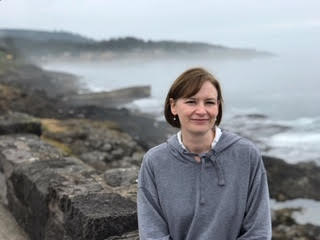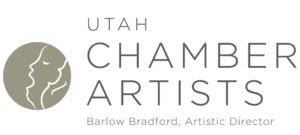Rachel: Why I Sing

When I was a teenager, I dreamed of being an opera singer when I grew up… like most kids, right? I spent hours in the basement practicing the Queen of the Night’s Vengeance aria, and the Jewel Song from “Faust.” Oh, my poor family. The suffering they must have endured. Spoiler alert: I did not become an opera star.
Music was always part of my identity in school. I started piano and violin lessons at a very early age, and continued through high school graduation. I was an indifferent pianist, and a solidly mediocre violinist. The memory of having to perform in violin recitals still makes my blood run cold. The sweat would be pouring down my neck as my uncontrollable shaking caused the bow to go bouncing over the violin strings.
Singing in public, however, was pure joy. I looked forward to performing in voice recitals, competitions, and musicals as much as I dreaded my violin lessons. As I once tried helplessly to explain to my long-suffering violin teacher, the violin always felt like a foreign appendage, something that would always be apart from me, never something I thought I could truly control. But singing literally came from inside me. Is there anything more personal, unique, and precious than one’s voice?
It didn’t take me long to discover I wasn’t cut out to be a music major, and instead I pursued my twin passion: literature. Eventually I became an English teacher, but I never stopped singing. After attending Utah Chamber Artists concerts for years, I couldn’t believe it when I auditioned and made it into the choir. At first, I felt a bit like an imposter; I was surrounded by so many professional musicians with phenomenal talent, when I was just someone who really, really liked to sing. Nothing compared to those rehearsals—the camaraderie, the repertoire, and the superb musicianship of everyone involved.
Some of my favorite moments from rehearsals were when Barlow would lead the choir in discussing the text of a piece, perhaps because it was particularly ambiguous, or beautiful, or heartbreaking. (The English teacher part of me, I guess.) It was always remarkable to me how sometimes each of us could interpret the words of a piece of music differently, each bringing our own individual backgrounds and belief systems to the text and music, and then unifying them into a sublime musical experience.

Many people have written more eloquently that I can about the power of music. It’s simultaneously universal and deeply personal. Most of us have that song that got us through a bad breakup, or the one that gives us the adrenaline boost we need to face our fears. Most of us can’t imagine a world without music, without some sort of soundtrack to our lives. The appeal of opera to me was that it always seemed like raw, undiluted emotion. It expressed all the things I felt—or wanted to feel—with unfiltered, in-your-face power. I feel privileged to a have been a part of creating powerful, emotional musical experiences while singing with UCA. In every venue we have performed, I have been lifted and carried away by the music. Nothing can duplicate those moments.
Occasionally I’ll still put on some Puccini and daydream about belting those notes from a stage. That dream is definitely not to be, but I wouldn’t trade the opportunity I’ve had to sing with Utah Chamber Artists for it if I could. I toyed briefly with the idea of calling this essay “Why I Sang.” But I can’t bear the finality of that past-tense verb. Even though I am no longer part of UCA, and even though I can’t hit those operatic high notes anymore, I know I will never stop singing.

